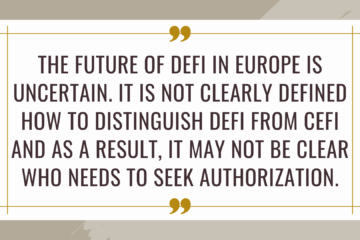New AML Circular Arrived To Liechtenstein – and It’s Great!

Liechtenstein recently confirmed its place as one of the most FinTech-friendly jurisdictions by adopting a new circular on digital verification of customers!
What’s changed:
- In addition to 2-way video verification of customers, more options are made available to FinTech platforms.
- From now on you can also verify individual customers (and in some cases also legal entities) using facial recognition between customer’s selfie and a photo-ID (passport or national IDs are both ok, but driver’s licenses are not, because they don’t always have sufficient security features, holograms, etc.). Annoying and useless “liveliness” test is not specifically required – simply because your customer’s ability to follow instructions is captured and can be demonstrated by the customer’s ability to enter their details, take and upload photos, click on confirmation buttons, review details and otherwise complete their onboarding tasks.
- HUGE NEWS: it is also possible to conduct simplified due diligence of eligible customers by validating their information via data included into incoming transfers and deposits coming from their other accounts within SEPA area. Amazon, PayPal and other Luxembourg-based entities have been using this method for several years already, and now Liechtenstein-based entities have been granted access to a level-playing field. There is a requirement that until this verification is completed, the customer should not be able to withdraw funds (which is very logical).
- It’s no longer required to receive beneficial owner confirmation from natural persons. Instead, it’s allowed to simply include into the Terms and Conditions the following statement “I confirm that I am acting on my own behalf and not on behalf of any third party” or something to that effect. It reduces onboarding friction and makes the experience much better.
In case you are wondering – I personally find video interviews to be redundant, unjustifiably expensive, slow, full of glitches and irrelevant, because human eyes cannot really conduct any facial recognition; agent errors with customers of different age or race reach 60-70% in some cases, video verification is slow and sensitive to the quality of internet connection, plus there is an issue of a language barrier and the problem of not being able to serve certain customers with disabilities.
In summary, I’m personally very happy for all Liechtenstein-based entities, especially those with EEA-passporting rights, because this circular clearly offers a competitive advantage over some neighbouring countries, where video-interview is still required 
By the way, if you need a comprehensive guidance on how to structure digital onboarding, where to place tick boxes, which tools to use, or how to implement sanctions and PEP scanning, feel free to download this FREE KYC Checklist!



 ) about the “Travel Rule” for blockchain transfers and what might be the first simplified implementation of it for a FInTech startup that’s getting very confused by various complex
) about the “Travel Rule” for blockchain transfers and what might be the first simplified implementation of it for a FInTech startup that’s getting very confused by various complex